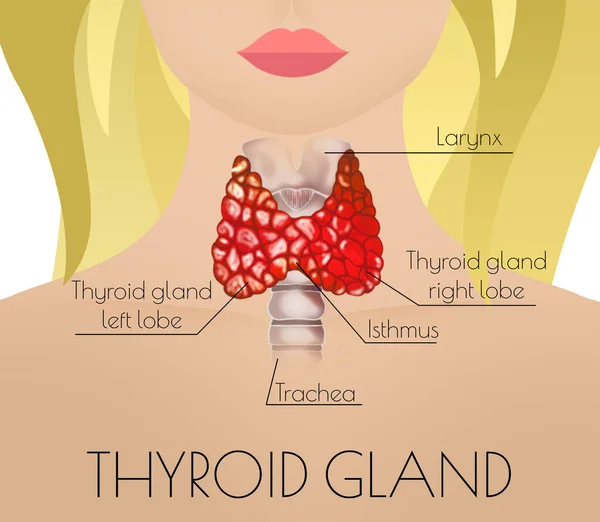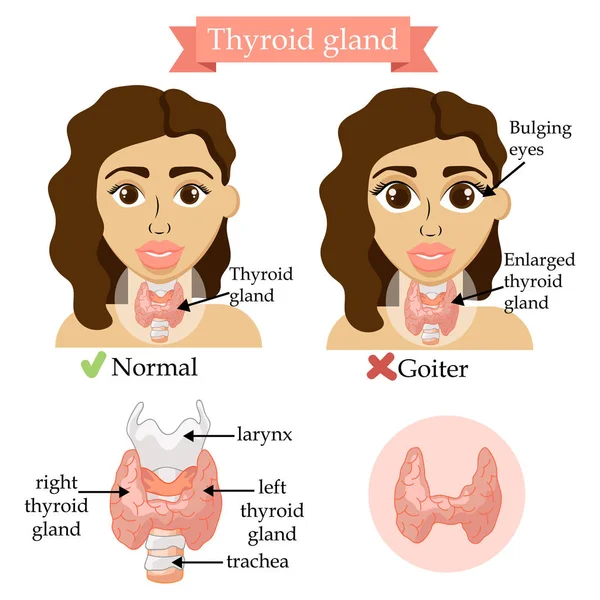How to Reduce Goiter Naturally, it characterized by the enlargement of the thyroid gland, can be a source of concern for many individuals. Understanding how to manage this condition naturally can empower you to take charge of your thyroid health. This guide delves into the causes of goiter, natural strategies for shrinking it, and what typical treatment options entail.

What Causes a Goiter?
A goiter can arise from several underlying factors, primarily linked to thyroid function and nutrition. The most common causes include:
- Iodine Deficiency: Iodine is crucial for thyroid hormone production. A lack of it can cause the thyroid to enlarge as it attempts to compensate for insufficient hormone levels. This is particularly prevalent in regions where iodine is not added to salt or food.
- Hormonal Imbalances: Conditions such as Graves’ disease (hyperthyroidism) and Hashimoto’s thyroiditis (hypothyroidism) can lead to goiter formation due to abnormal hormone levels.
- Thyroid Nodules: Non-cancerous lumps within the thyroid can also contribute to its enlargement.
- Inflammation: Thyroiditis, or inflammation of the thyroid gland, can result from infections or autoimmune disorders, leading to swelling.
- Medications and Radiation Exposure: Certain medications (like lithium) and previous radiation treatments can increase the risk of goiter development.
Understanding these causes is essential for effective management and prevention strategies.
How to Shrink a Goiter Naturally

While medical intervention may be necessary in some cases, several natural approaches can support thyroid health and potentially reduce goiter size:
- Increase Iodine Intake: For those with iodine deficiency, incorporating iodine-rich foods such as seaweed, fish, dairy products, and iodized salt into your diet can be beneficial. However, excessive iodine intake should be avoided as it can worsen certain thyroid conditions.
- Nutrient-Rich Diet: A balanced diet that includes selenium (found in Brazil nuts), zinc (in pumpkin seeds), and antioxidants (from fruits and vegetables) supports overall thyroid function. These nutrients help in hormone synthesis and may reduce inflammation.
- Herbal Remedies: Some herbs like guggul and ashwagandha have been traditionally used for their potential benefits in managing thyroid issues. Guggul may help regulate thyroid hormone levels, while ashwagandha is known for its adaptogenic properties that can reduce stress—a factor that negatively impacts thyroid health.
- Stress Management Techniques: Practices such as yoga, meditation, and deep-breathing exercises can help manage stress levels. Chronic stress has been shown to adversely affect thyroid function.
- Regular Monitoring: Keeping track of your symptoms and regular check-ups with your healthcare provider are crucial. This ensures that any changes in your condition are addressed promptly.
Implementing these natural strategies may not only aid in reducing goiter size but also enhance overall well-being.
What Does Goiter Treatment Entail?
Treatment for goiter varies based on its size, symptoms, and underlying cause. Here are common approaches:
- Observation: Small, asymptomatic goiters may not require immediate treatment but should be monitored regularly through physical exams and imaging studies.
- Medications: If hormonal imbalances are present, medications such as levothyroxine (for hypothyroidism) or antithyroid drugs (for hyperthyroidism) may be prescribed to regulate hormone levels and reduce goiter size.
- Iodine Supplements: In cases where iodine deficiency is identified as the cause of the goiter, supplements may be recommended under medical supervision to restore normal levels without risking excess intake.
- Radioactive Iodine Therapy: This treatment involves administering radioactive iodine to selectively destroy overactive thyroid tissue, effectively reducing the size of the goiter over time.
- Surgery: For large goiters causing significant symptoms or those suspected of being cancerous, surgical removal (thyroidectomy) may be necessary. This procedure involves either partial or total removal of the thyroid gland depending on the specific circumstances.

In conclusion, managing a goiter naturally involves a multifaceted approach that includes dietary changes, stress management techniques, and regular medical monitoring. By understanding the underlying causes and treatment options available, individuals can take proactive steps toward better thyroid health. Always consult with a healthcare provider before making significant changes to your treatment plan or diet.
Also Read | 4 Expert Tips to Relieve Hip Pain While Sleeping








